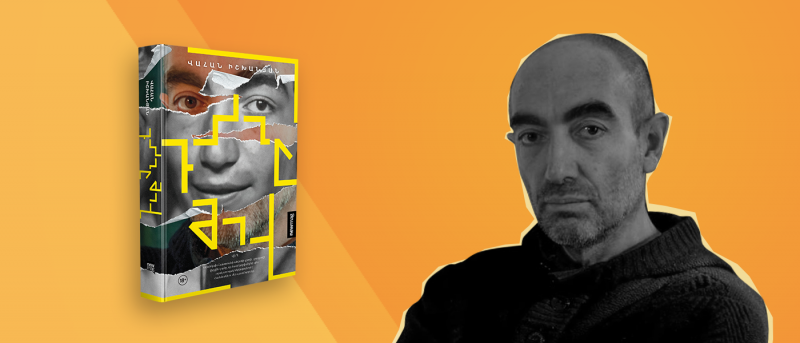Vahan Ishkhanyan has revealed the mysteries of his family’s history in his latest book (video)

The writer and publicist Vahan Ishkhanyan wrote about his own experiences in his last book, “Bitter Sea”. He decided that his next book would focus on his grandfathers, Avetis Kirakosyan, a communist, and Vahan Cheraz, a nationalist. Interestingly, both o
In the indictment for the execution of Vahan Ishkhanyan's grandfather, Vahan Cheraz, it was stated, “Contact with nationalists (dashnaks). The leader of the scouting movement was recruiting people for the nationalists”. Unfortunately, Vahan Ishkhanyan never had the chance to meet his maternal and paternal grandparents. It's a striking coincidence that both his communist and nationalist grandfathers fell victim to Stalin's repression. As a result, he chose to make his next book about these two grandfathers, Avetis Kirakosyan and Vahan Cheraz.
“Every school and university friend had at least one grandmother and two grandfathers. I was the exception because both my father and mother were orphans. None of the four grandparents were there. As I grew older, I started contemplating this more, especially after reading Cheraz's memoirs from his time in prison. If they had been there, it would have had a profound impact”.
In 2006, he applied to the National Security Service but was initially rejected. What Vahan Ishkhanyan received was difficult to read as the river overflowed and destroyed most of the archive, including the documents related to Vahan Ishkhanyan's grandfathers.
Some of the documents were marked as top secret, and they didn't provide them because the names of the traitors were visible. He also knew the son of one of them. “I know that man's son, we are on good terms. He has had interactions with our family. And suddenly you see, he's the son of a traitor. Later, you find out that he was apprehended. It's the generation responsible for their grandfather. That's what I believe in”.
By another coincidence, Vahan Ishkhanyan's two grandfathers and maternal grandmother were executed in Tiflis. His paternal grandfather, Avetis Kirakosyan, known as Ratikhan, was shot near Tiflis in 1937. His maternal grandfather, Vahan Cheraz, was executed in 1928, and his maternal grandmother, Vardanush, nine years after her husband's execution. “The documents were handed to me as soon as I left the KGB (The Committee for State Security, Soviet Union). I was walking and reading them. I was standing across from the Ani Hotel when I read about the execution. That shocked me. I know he was taken in 1937. We talked all the time, and it was mostly understood that he had been executed, but there's always hope”.
He made up his mind to travel to Tiflis in search of additional archival documents. He often found himself regretting why he hadn't started delving into the past sooner. He had already made some preliminary notes for his novel “Bitter Sea”, and he intended to explore this subject in greater detail later. “My mother's memories echo in my mind as if her father and mother were taken away just yesterday. Let me go and spend a couple of days there now, he still began to recall how his mother was taken away that fateful day. Ever since I was a child, I have constantly heard how she had dressed them up and taken them to piano lessons. Then his cruel life, his uncle's wife in his uncle's house, how he oppressed him”.
He felt a deep sense of regret for what he and his country had not done. He pondered why the divide between the homeland and its people had not healed over time. Why had the Republic of Armenia not assumed the role of inheritor and guardian of those it had lost and the losses it had endured? It saddened him that the nation had not fully acknowledged victims of violence in 1937, and this weighed heavily on his heart as he struggled to put it into words.
Read also

At Winterfest 2026, Newmag will present Henrikh Mkhitaryan’s memoir “My Life Always at the Center” (trailer)

Winterfest to feature David Georgyan’s sci-fi action novel Impedance (trailer)

At Winterfest 2026, Newmag will present Marianna Hakobyan’s “Don’t Change the Names” (trailer)

Closing and Award Ceremony of the “Sprout in Armenian – 2025” Competition at Newmag Winterfest

